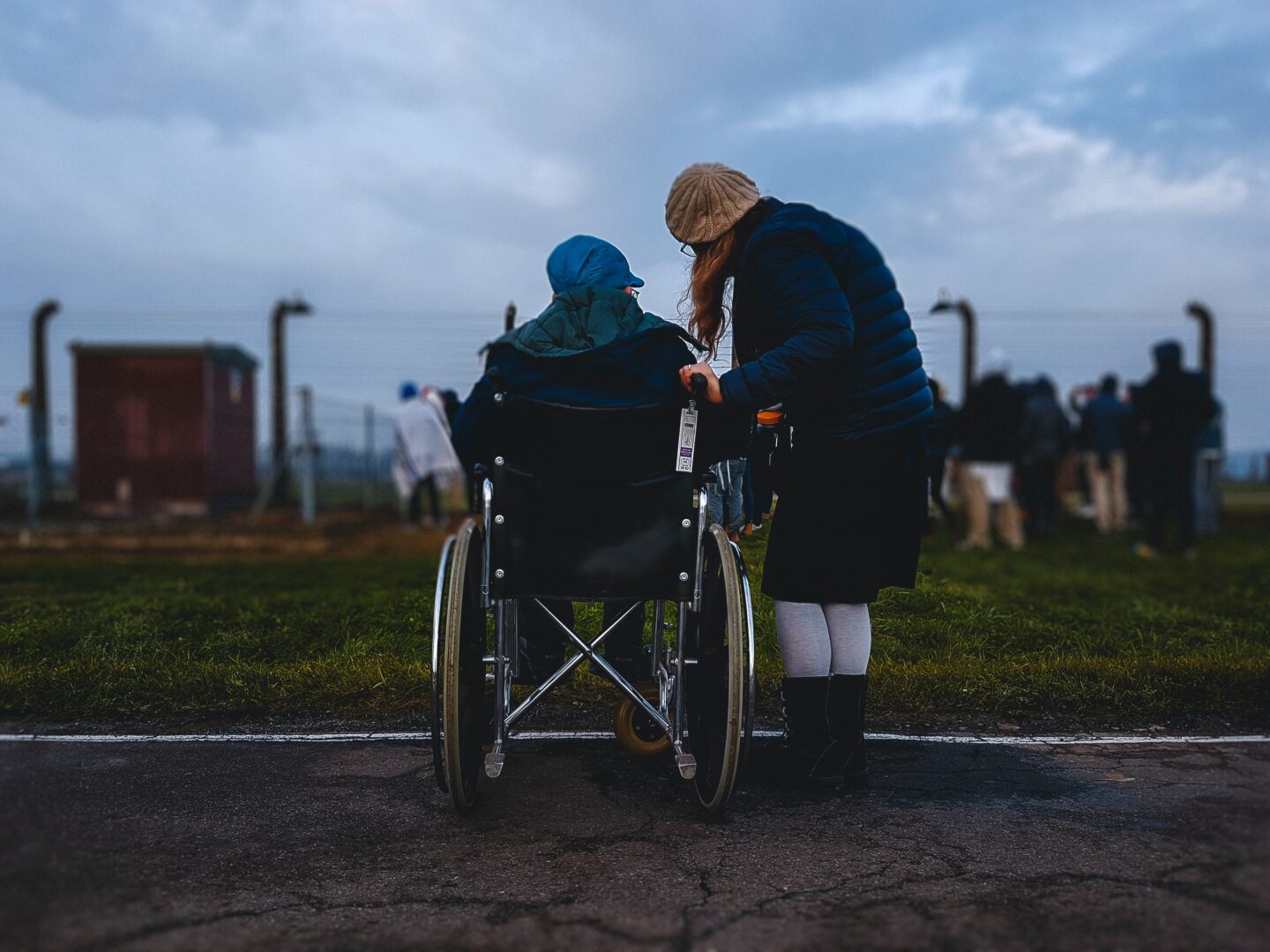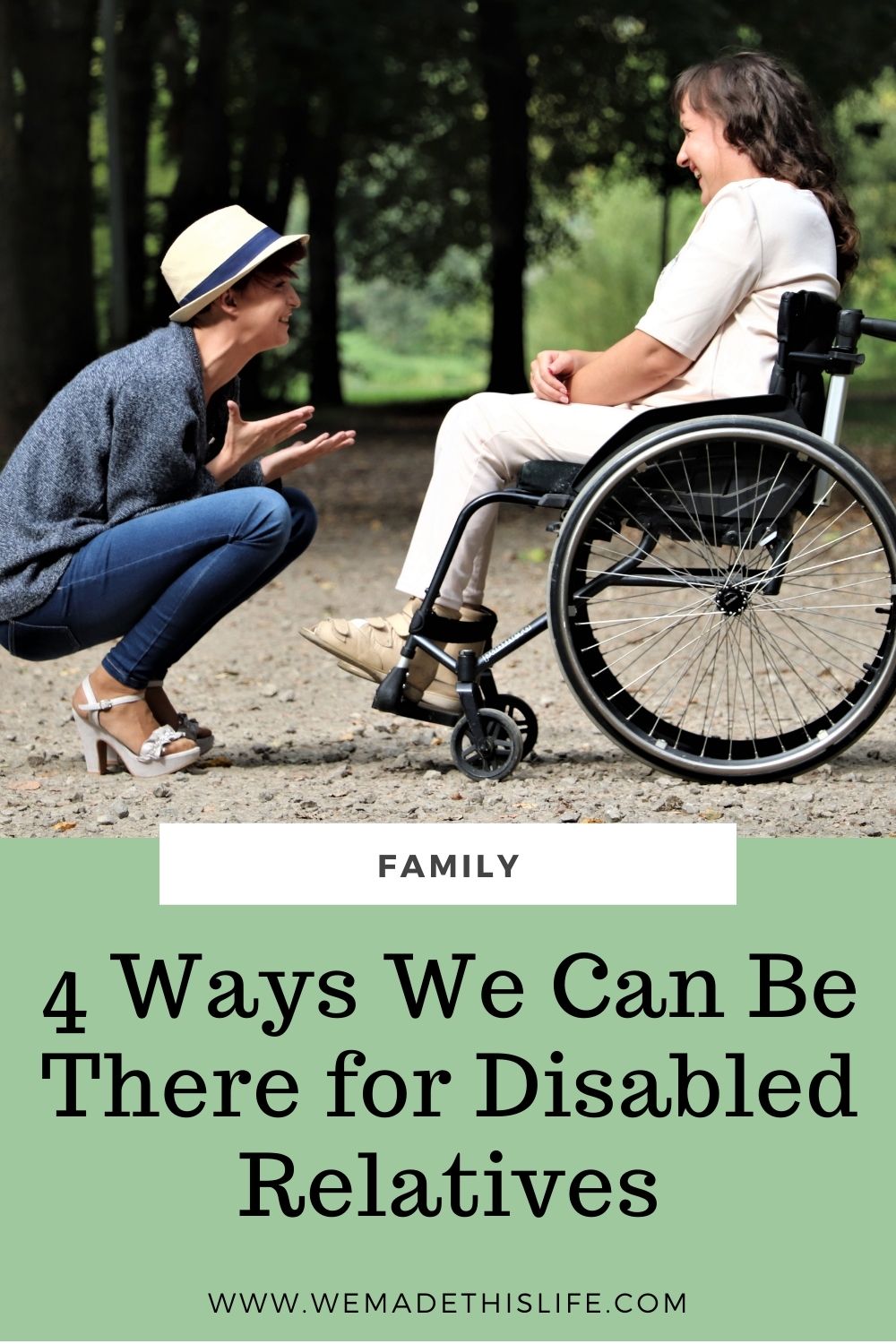
Whether you have a relative who has been disabled all their life or become disabled more recently, you will ultimately notice the differences in how you do things. Now, disabilities aren't always obvious to the naked eye but there are usually adjustments that disabled people have to make to function in their everyday lives. You may have a relative who requires thick reading glasses and a collapsible walking stick in order to navigate safely outdoors. In other cases, wheelchairs, service pets, walkers, and other mobility equipment may be used by a disabled person regularly to remain functional. If you want to help the most, ask what you can do. Here are four universal ways that family members can be there for disabled relatives.
1. Be Understanding
Although disabled people are quite capable of doing many, if not most things for themselves, the way in which they complete everyday tasks might look a lot different than your methods. Traveling in and out of cars, going up and downstairs, and even getting dressed in the morning can require a routine that is not familiar with you. Be understanding and have patience when you interact with your disabled relative. Don't rush them, offer unsolicited advice or criticism as a form of motivation. Also, don’t offer to do things for your relatives as a way of getting tasks done quicker; this just undermines their independence.
2. Asking About Their Health
In the best of times, just when your disabled family member is looking and functioning their best, a medical complication can retail their life. Some disabilities are not related to diseases or disorders, but quite a few do stem from long-term and chronic illnesses. You don't be able to control when your relative experiences flare-ups and other medical complications, but you can inquire about their health often. Offering support and care would mean the world to anyone experiencing a medical emergency.

3. Offering Transportation
Regardless of whether you live in a city that has an excellent public transportation system or if your relative drives their own wheelchair accessible vehicle, being a driver or even an assistant is a great way to support your disabled loved one. Running errands takes time and two bodies are always better than one. If your relative has a lot of responsibilities, such as homeschooling their children or being involved in charities and local community groups, you can always volunteer to provide transportation when needed.
4. Repair and Check Their Mobility Equipment
Some disabled people utilize mobility equipment to function both in and out of the home. Wheelchairs, walkers, scooters, and other mobility equipment has to be checked and fiddled with from time to time. Heavy-duty mobility scooters are more sturdy than regular ones, and they are manufactured in the United States. Making adjustments to mobility equipment can be difficult for some disabled persons, so you should always offer to make minor adjustments whenever you are able to.
Having a disability might mean that a person's life will look a little different, but it does not indicate that they will have to miss out on anything. Disabled people have been living, working, and growing with their families since the beginning of time. They have created and made use of mobility devices so that they could be one and exist along with able-bodied people, offering their knowledge, strength, and endurance for as long as mankind has been around. Technology has improved how disabled people can function on their own, just as laws have been enacted to protect them from discrimination and bullying. Help your disabled relative to live a full life by offering your assistance in any way that you can.
Did you like this post 4 Ways We Can Be There for Disabled Relatives? Share it with your friends and Pin it for later....

You might also like...
How to talk to parents about future-proofing their home





Leave a Reply